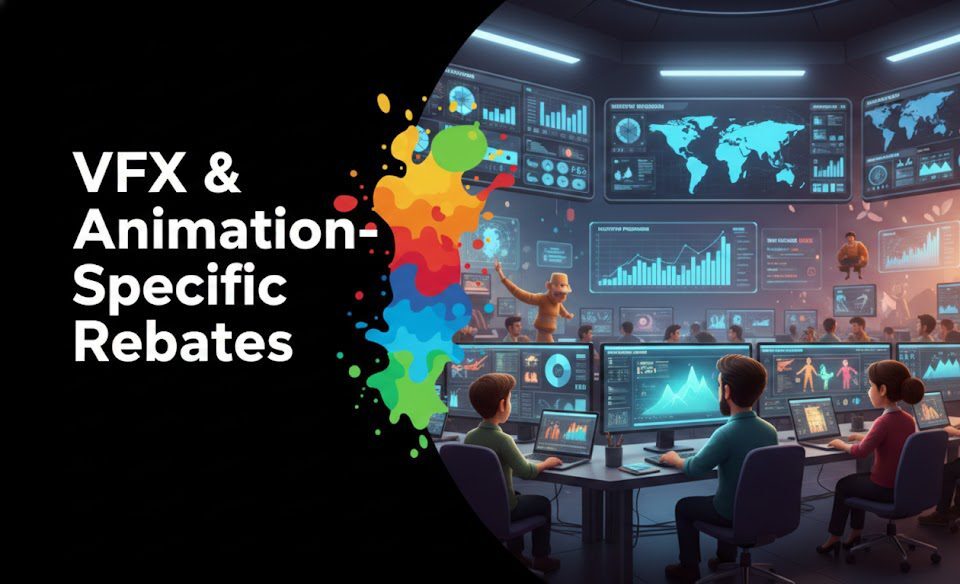Introduction
The entertainment industry thrives on creativity, and behind every successful film, TV show, or live performance is the right talent management. For buyers looking to streamline their talent acquisition process, and sellers offering management services or tools, understanding talent management’s role in entertainment is crucial. This article will provide an in-depth look at effective strategies, the role of technology, and how Vitrina Business Network (VBN) can help connect industry players with the right talent and solutions.
Key Takeaways
| Insight | Details |
| What is Talent Management? | Overview of managing talent in the entertainment industry. |
| Building a Talent Management Strategy | Key strategies for implementing talent management in production. |
| Tools for Talent Management | Exploring the best technology and tools for entertainment talent management. |
| Legal and Contractual Considerations | How to navigate contracts and the legal aspects of talent management. |
| Vitrina’s Role | How Vitrina connects buyers and sellers to streamline talent management. |
Table of content
- Introduction
- Key Takeaways
- Understanding Talent Management in Entertainment
- Developing a Talent Management Strategy
- Talent Acquisition and Development
- Technology and Tools for Talent Management
- Contracts and Legal Considerations
- Scaling and Measuring Talent Management Success
- FAQs
- Vitrina’s Role in Talent Management for Entertainment
Need Better Talent Management Solutions?

Understanding Talent Management in Entertainment
What is Talent Management for Entertainment?
Talent management in the entertainment industry involves the process of sourcing, developing, and retaining the right talent—whether it’s actors, musicians, or behind-the-scenes professionals. From building a successful production team to finding the perfect lead for a film, talent managers play a critical role in identifying and nurturing the best talent to achieve success.
The Role of Talent Managers in Entertainment
Talent managers are essential in helping artists and professionals navigate their careers by:
- Negotiating contracts on behalf of the talent.
- Coordinating opportunities with production houses and agencies.
- Managing the career growth of the talent they represent.
The Importance of Talent Management in Entertainment Production
Effective talent management directly impacts the quality of content. A well-managed talent pipeline ensures that productions are staffed with the best professionals, leading to higher-quality films, TV shows, or live performances.
Talent Management vs. Casting Agencies in Entertainment
While casting agencies focus on finding talent for specific projects, talent managers oversee an individual’s career, offering guidance, handling contract negotiations, and ensuring that their client’s career path aligns with long-term goals.
Developing a Talent Management Strategy
Key Talent Management Strategies for the Entertainment Industry
Building a strong talent management strategy is crucial for production houses and entertainment companies. Key steps include:
- Understanding talent needs: Identify what kind of talent is needed based on the project’s scope.
- Long-term planning: Develop talent to meet both current and future production goals.
- Collaboration: Work closely with directors, producers, and casting agents to align talent selection with production vision.
How to Create a Talent Development Plan in Entertainment
A talent development plan focuses on nurturing the skills and growth of your talent over time. This can include offering:
- Workshops and training programs for new talent.
- Career mentorship to guide talent toward long-term success.
Best Practices in Talent Management for the Entertainment Industry
To optimize talent management:
- Communicate clearly with all stakeholders.
- Use data and technology to identify and track talent.
- Be adaptable to changing industry trends and talent needs.
The Role of Talent Management in Entertainment Events and Productions
From awards shows to film festivals, talent managers ensure that their clients are positioned for maximum visibility and success. Managing public relations and coordinating appearances is key to maintaining an artist’s reputation.
Want to Showcase Your Talent Management Services Globally?

Talent Acquisition and Development
Best Talent Agencies for Actors, Musicians, and Artists
Finding the right talent agency can be crucial for developing careers. Leading agencies such as Creative Artists Agency (CAA) and United Talent Agency (UTA) specialize in representing top-tier talent and providing them with career-defining opportunities.
How to Attract Top Entertainment Talent to Your Agency
Attracting top talent requires:
- Building a strong reputation within the industry.
- Offering competitive contracts and career development opportunities.
- Ensuring a supportive environment for creative growth.
How to Develop a Talent Pipeline in Entertainment
A well-maintained talent pipeline ensures a steady flow of top talent. Key strategies include:
- Building relationships with talent early in their careers.
- Offering internships or mentoring programs to new talent.
- Maintaining long-term partnerships with casting agents and other agencies.
The Importance of Diversity in Talent Management for Entertainment
Diversity is essential in today’s entertainment landscape. Embracing talent from a variety of backgrounds ensures that content appeals to a broad audience and reflects real-world diversity.
How to Retain Top Entertainment Talent in a Competitive Market
Retention strategies include:
- Providing continuous opportunities for talent growth.
- Offering competitive compensation packages.
- Ensuring creative freedom within projects.
Looking to Scale Your Talent Management Agency?

Technology and Tools for Talent Management
Best Tools for Managing Talent in Entertainment
Modern tools for managing talent include:
- Talent management software like Greenhouse or BambooHR, which streamline the process of recruiting and managing talent.
- Collaboration platforms like Slack or Trello, which enhance communication across production teams.
Talent Management Software Solutions for the Entertainment Industry
Using talent management software can:
- Simplify talent tracking and organization.
- Provide analytics to evaluate talent performance.
- Offer automated scheduling for auditions, events, or rehearsals.
How Technology is Changing Talent Management in Entertainment
Technology is driving innovation in talent management by:
- Automating the recruitment process using AI and machine learning.
- Enhancing collaboration tools for remote production teams.
- Improving data analytics, enabling managers to make informed talent decisions.
Talent Management for Digital Media and Streaming Platforms
With the rise of streaming platforms like Netflix and Disney+, managing talent for digital content has become increasingly important. Talent managers must now navigate contracts and opportunities across both traditional media and digital platforms.
The Role of Social Media in Talent Management for Entertainment
Social media has become a crucial tool for managing an artist’s public persona. Platforms like Instagram, Twitter, and TikTok help talent managers:
- Promote their clients and increase visibility.
- Engage directly with fans to build a stronger fan base.
Contracts and Legal Considerations
How to Handle Talent Contracts and Negotiations in Entertainment
Talent managers must be skilled in negotiating contracts, ensuring that their clients receive fair compensation and career-enhancing opportunities. Important contract elements include:
- Compensation packages
- Rights and royalties
- Non-compete clauses
Legal Aspects of Talent Management in Entertainment
Legal considerations include understanding intellectual property rights, employment law, and contract negotiations. It’s crucial for managers to ensure that both the talent and the production are protected from potential legal disputes.
How to Manage International Entertainment Talent Contracts
Working with international talent requires additional considerations, such as:
- Visa requirements for international work.
- Navigating tax laws across multiple countries.
- Understanding cultural differences in negotiations.
Key Challenges in Entertainment Talent Management
Common challenges include:
- Balancing creative freedom with business goals.
- Navigating contract disputes and legal challenges.
- Keeping up with the rapid pace of industry changes.
Building a Global Talent Network for the Entertainment Industry
Building a global network helps ensure access to top talent across different markets. Managers should prioritize international partnerships with agencies, casting directors, and legal experts.
Scaling and Measuring Talent Management Success
How to Scale Your Talent Management Agency in Entertainment
To scale successfully:
- Expand your talent portfolio by signing new and emerging talent.
- Leverage technology tools to handle more clients and projects.
- Build a strong brand presence that attracts both talent and producers.
The Future of Talent Management in the Entertainment Sector
The future of talent management will likely see increased reliance on automation, data analytics, and AI to manage talent more efficiently. Virtual events and remote work are also shaping how talent is discovered and managed.
How to Measure the Success of Talent Management in the Entertainment Industry
Measure success through:
- Retention rates of top talent.
- The performance and success of talent in key projects.
- Feedback from talent, producers, and casting agencies.
Conclusion
Vitrina Business Network (VBN) offers a platform that connects both buyers and sellers within the entertainment industry, making it easier to discover talent and manage them effectively. With access to 72,000 verified professionals, Vitrina helps streamline talent acquisition, offering both software solutions and networking opportunities to optimize your talent management strategy. Join Vitrina today to take your talent management efforts to the next level!
Frequently Asked Questions
Talent management helps discover, develop, and manage talent to meet project needs and long-term career goals.
Tools like Greenhouse and BambooHR help manage recruitment, contracts, and performance.
Vitrina Business Network connects buyers and sellers, offering access to top talent and management solutions globally.
Managing international talent requires understanding visa regulations, tax laws, and cross-cultural negotiations.
Technology integration, remote work, and diversity will continue to shape talent management in the future.































